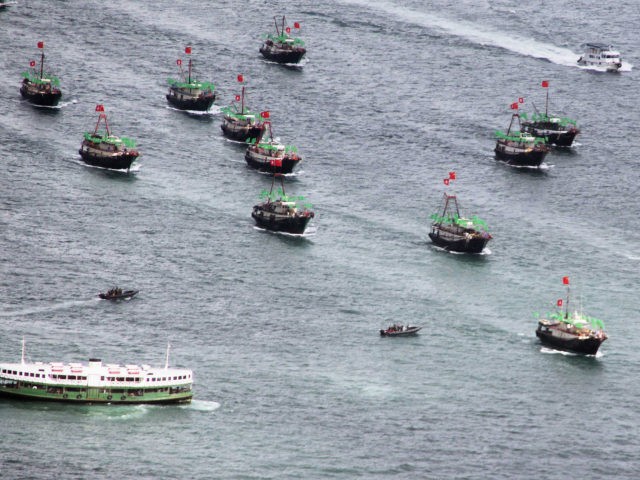The governments of Chile, Colombia, Ecuador, and Peru issued a joint statement Wednesday warning Chinese ships to stop fishing illegally within their sovereign territory.
The South American nations pledged “to prevent, discourage and jointly confront” illegal fishing in their exclusive economic zones in the Pacific, explaining that they would boost “cooperation and real-time exchange of information” to highlight the issue.
The announcement comes several months after Ecuador complained to Chinese authorities about illegal fishing after Ecuador identified hundreds of Chinese vessels near the Galápagos Islands, which are part of the country’s exclusive economic zone and an ecologically sensitive area.
According to Ecuadorian officials in July, there were at least 260 ships within the island’s vicinity, all of which disabled their public tracking devices to avoid detection.
“We are on alert, (conducting) surveillance, patrolling to avoid an incident such as what happened in 2017,” Defense Minister Oswaldo Jarrin said at the time.
In response to the complaint, the Chinese regime officially banned all its vessels from fishing near the Galápagos from September until the end of November. The new rules have reportedly prompted the Chinese ships to target other areas of the South American coast in the exclusive economic zones of Peru and Chile. Waters off the Colombian coast are also a potential target.
In the 2017 incident referenced by Jarrin, authorities arrested and prosecuted a team of Chinese fishermen illegally holding 6,600 sharks they had caught off the Galápagos, causing a diplomatic spat between the two countries. A court found them guilty and sentenced them to between one and four years in jail as well as a $5.9 million fine.
That was not the last time that Chinese vessels were caught violating international law around the Galápagos Islands, famously studied by Charles Darwin as he came up with his theory of evolution. Last year, a fleet of around 250 ships were similarly caught harvesting large numbers of exotic fish from the Galápagos Conservation Zone, a highly sensitive ecological area.
Follow Ben Kew on Parler, Facebook, or Twitter. You can email him at bkew@breitbart.com.

COMMENTS
Please let us know if you're having issues with commenting.